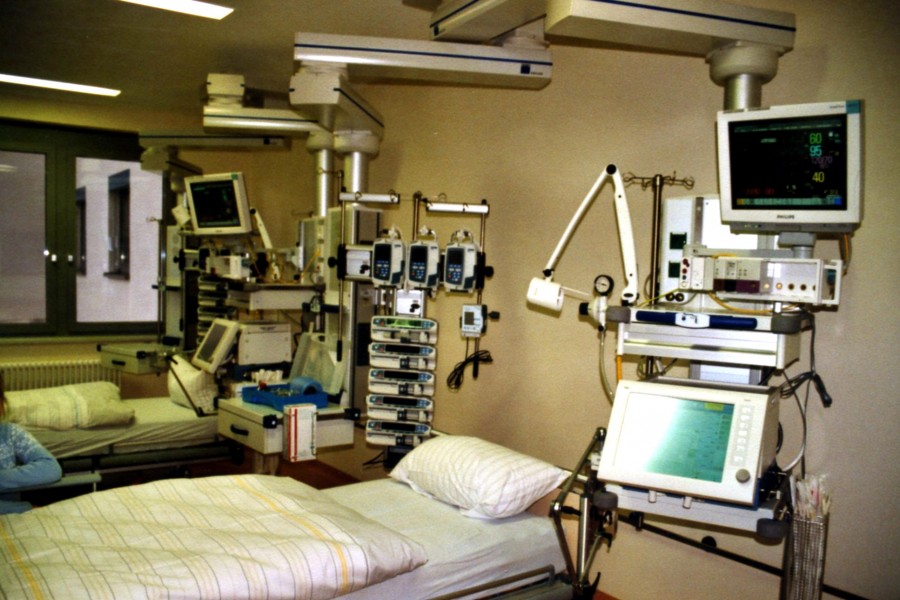The rate of caesarean birth in Bangladesh was 4.0 per cent in 2001. When it increased to 12 per cent in 2010, people felt quite disturbed. But since then, the number of women going through caesarean section (C-section or caesarean delivery) has recorded a phenomenal growth. The rate of caesarean birth soared to nearly 32 per cent in 2016, says Lancet, world's most prestigious medical journal, quoting a survey finding.
Thus, every third baby in Bangladesh does have a caesarean birth. The rate is unusually high, both in regional and global context. Globally, according to Lancet, the caesarean birth rate went up twofold between 2010 and 2018.
The changing lifestyle may be one of the reasons for the rise in rate of caesarean births. But it is unlikely to push up the rate to such a high level. Greed to earn more money by any means, fair or foul, among a section of doctors and owners of private hospitals and clinics, it is widely believed, is largely responsible for this unusual rise in birth of babies through C-section. At private health facilities, 80 to 90 per cent of the babies are born through caesarean delivery. The rate is far low in the case of government hospitals.
Doctors concerned should be knowing it very well that caesarean birth could have been avoided in many cases. Yet, it is alleged, they very often indulge in unfair practices for financial gains for themselves as well as hospitals. In the process, many families suffer psychological trauma and financial loss.
More importantly, most families remain oblivious of the possible consequences of births through caesarean section. Researchers have found that the rate of mortality and susceptibility to diseases among mothers undergoing caesarean section are high. Also babies born through caesarean delivery might experience a few physical changes that have long-term effect on their health.
Doctors and hospitals, mostly the private ones, are least interested in such issues. In many cases, the expectant mothers, once admitted to hospitals and clinics, are asked by attending doctors to be mentally prepared for caesarean section.
Caesarean delivery is performed these days even in rural health facilities. At times, poorly trained medical attendants at ill-equipped facilities perform C-section, putting the life of both the mothers and the baby at stake.
There is no denying that the caesarean section performed under the guidance of qualified doctors has been saving lives of thousands of mothers and their babies every year. But it is often abused by a section of people just to earn money unduly.
In the event of their sickness, people seek doctors' help and submit themselves to their caring hands. The ethics of the medical profession delineate clearly how doctors should deal with their patients. Deviation from the ethical standard only invites all the troubles for patients and also physicians. Patients do suffer physically and financially and physicians earn bad names for their profession.
However, the dishonest section of doctors and hospitals resort to unethical practices not only in the case of childbirth. There are many other grey areas in the medical profession. Notable ones include the use of stents and bypass surgery in the case of cardiovascular diseases and placement of patients in intensive care units (ICUs) and life-support tents in private hospitals.
Studies at home and abroad have found that doctors in many cases could avoid the use of stents and bypass surgery. A study carried out in the USA found that 40 per cent of bypass surgery were redundant. If such things can happen in a country like the USA, one can well imagine the situation in Bangladesh.
The people concerned are well aware of the situation with the use of stents and other heart implants in hospitals. Following a number of media reports on financial irregularities involving stents, popularly known as 'rings', the government some months back fixed prices of stents on the basis of their quality. But allegation about unfair practices involving the same is still there. Since this particular implant is not found in any drug store and is controlled and supplied to the physicians or hospital authorities directly, there exists strong suspicion about foul play.
It is often alleged that private hospital authorities, at times, keep patients in the ICU or under life-support facility unnecessarily just to squeeze out some extra money. May be such allegation is baseless in many instances. But it certainly demonstrates lack of faith in both physicians and hospital management.
Unfortunately, neither the relevant health authority nor the Bangladesh Medical and Dental Council (BMDC), the watchdog body for medical professionals, have ever tried to look into the authenticity of such allegations and address those.
Over the years, country's health services have expanded both in the public and private sectors. The public health facilities have been meeting the medical needs of the poor and lower middleclass. Middleclass and affluent section of society are taking services from the private ones. Deficiencies in the public health services are well known. The private hospitals and clinics are better-equipped, in terms of medical manpower and equipment. But in the absence of any regulatory mechanism, the service takers often make allegation of over-charging and cheating against those facilities. The government should evolve some ways to look into those allegations and redress grievances.


